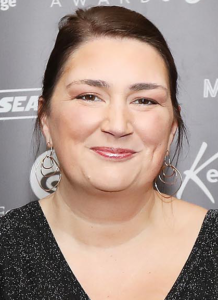[audio mp3="https://belfastmedia.com/wp-content/uploads/2020/05/AUDIO-2020-05-14-12-01-00.mp3"][/audio]
Click link above to listen to Andrée

The first occurred on the anniversary of the killings at Loughgall in 1988. Those SAS extra-judicial killings and ambush are viewed very differently across our community spectrum, but at the heart of their legacy is a contest as to the efficacy of the police investigation at the time. A fresh inquest has been ordered into the killings as the previous one was incompatible with human rights law.
Anniversaries for every family are incredibly difficult, when the circumstances were violent and traumatic the pain is heightened. No matter who you are and no matter the circumstances.
Two DUP MLAs, Christopher Stalford and Paul Frew, took to social media. Crass and diminishing are the words I will use for how I viewed them. Public representatives have a particular duty to not add to the suffering of those in pain. The response to the tweets objecting to their tone and content came from republicans and those living in republican communities.
There was, however, no general outrage. It is worth thinking about what might have happened had a Sinn Féin MLA tweeted something similar about Warrenpoint or any action where military personnel were killed.
The IRA were never the same,it totally wrecked them.The hunt for a mole destroyed them mentally. They lost all confidence. This was indeed the beginning of the end of the IRA ,a series of incidents & the stranglehold of intelligence led policing that would lead to an IRA defeat .
— Paul Frew (@paulfrewDUP) May 8, 2020
The second exchange happened when Christopher Stalford MLA liked a tweet that had been posted by Lucid Talk which repeated a Carry On film ‘joke’ about domestic violence. Many who replied to the ‘joke’ pointed out that three women have been killed since lockdown as a result of domestic violence .
After a lot of pointing to Mr Stalford’s liking of the tweet he apologised, recognising it was in bad taste and that domestic violence is no laughing matter. His decision to apologise may well have come from his own reflection on the matter, or was prompted by the wide criticism, much from his South Belfast constituency, directed at him over the course of a day.
I find it interesting that those outraged, and prompted to express their outrage through social media, were silent on the bad taste employed in the previous tweets regarding Loughgall. I suppose the two sets of bad taste standards might be written down somewhere for me to know the rules, but I doubt it. But we all know what the double standards are.
On killings it seems it’s okay to attack the memories, grief and trauma of the families of non-state actors, particularly the families of IRA volunteers. That extends to all families affected by state violence even when they were civilians and children, because, well, the state did it.
Loughgall. What happens when you encounter actual soldiers as opposed to murdering your neighbours on their isolated farms. https://t.co/NNorCyFfTj
— Christopher Stalford (@CStalfordMLA) May 9, 2020
If families affected by non-state actors are saying the British state acted in collusion with them, then they are fair game too. It is absolutely not okay to do any of that when the people killed were killed by the IRA or any other republican grouping, especially if said individual was in the employment of the state. Responses or silences to this will generally follow said rules.
In parallel it is okay to hound politicians who like sick jokes about domestic violence and point out that silence is not an option. And it is equally okay to ignore explicitly provocative and hurtful comments about the dead of our conflict by exactly the same representatives.
I don’t make the rules, but it’s a funny old world.
Our photo collage shows the IRA members shot dead at Loughgall RUC station in 1987. They were Eugene Kelly, Tony Gormley, Paddy Kelly, Declan Arthurs, Seamus Donnelly, Jim Lynagh, Padraig McKearney and Gerard O'Callaghan. A civilian Anthony Hughes was also shot dead in the British Army/RUC ambush.


